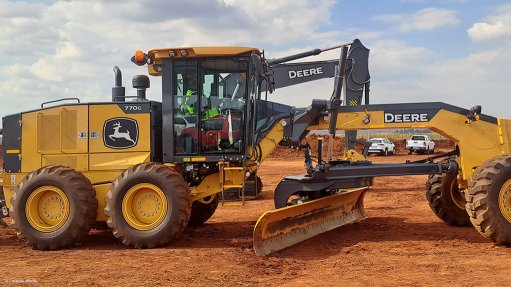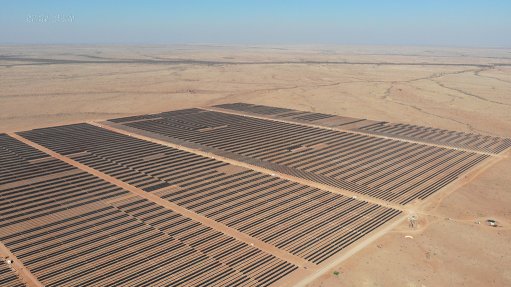Africa’s Mini-Grid Agenda
This article has been supplied as a media statement and is not written by Creamer Media. It may be available only for a limited time on this website.
Improving energy access for the population of Africa is critical to achieving the region’s 2030 Agenda for Sustainable Development. Energy access is a pivotal catalyst for economic development, improving levels of efficiency which is considered a significant factor in promoting growth and structural transformation across the African continent.
The landscape and population distribution of the African continent affirms why major power plants lack capacity to reach and serve all areas. Considering that many of these regions are located so far from other urban centres, extending a country’s main electrical grid remains unaffordable.
This then gives rise to the provisional solution of holistically studying energy access and planning, which includes integrating smaller “mini-grids” that operate independently from the main grid in isolated regions of the continent. Application of such solutions could also prove sustainable in areas where it remains unfeasible to spread the grid, due to issues of topography or low population density.
Mini-grids present a viable solution to increasing energy access to Africa’s population while also tapping into Africa’s huge potential for renewable energy. This will require authority from the public sector to allow private sector involvement, in the form of regulations and financing mechanisms.
Africa’s abundant renewable energy sources remain the most economical strategy for powering mini-grids. Nonetheless, the development of mini-grids presents various challenges that require attention. Barriers confronting the development of private sector mini-grids in Africa include gaps in the policy and regulation governing mini-grids along with discrepancies in market data and linkages; capacity of key stakeholders and access to funding.
In response to these barriers, leaders have sought to combine the efforts of development partners, who are supporting the expansion of private sector involvement in mini-grids, as well as private investors.
This can prove instrumental in providing clean energy mini-grid projects with the necessary sustainability, thereby enabling African nations to achieve their commitments to the Paris Climate Agreement, as well as their Sustainable Development Goals (SDGs). Development partners have provided governments with grants for the development of business models and the provision of technical training and expertise with the purpose of improving energy access levels across the continent.
Africa could be well on its way to achieving universal energy access if sound partnerships between the government, private sector and development partners are established and maintained.
This will involve the development of business models to boost sectoral growth, the creation of an enabling climate through the formulation of relevant policy and regulation, and lastly access to innovative funding mechanisms from both the development community and private investors.
Mini-grid power projects are set to make a huge impact as Africa plays catch-up in its generation capacity. These revolutionary solutions will form a key component in the discussions at the upcoming Africa Energy Indaba, and anyone vested in the energy sector will reap the benefits of attending this premier conference.
“Our aim is to unlock the potential on mini-grid power projects and catalyse the business opportunity linked to developing these projects in Africa. The conference programme will feature this aspect as well as link interested parties to the key role-players in Africa”, commented Liz Hart, Managing Director, Africa Energy Indaba.
Comments
Press Office
Announcements
What's On
Subscribe to improve your user experience...
Option 1 (equivalent of R125 a month):
Receive a weekly copy of Creamer Media's Engineering News & Mining Weekly magazine
(print copy for those in South Africa and e-magazine for those outside of South Africa)
Receive daily email newsletters
Access to full search results
Access archive of magazine back copies
Access to Projects in Progress
Access to ONE Research Report of your choice in PDF format
Option 2 (equivalent of R375 a month):
All benefits from Option 1
PLUS
Access to Creamer Media's Research Channel Africa for ALL Research Reports, in PDF format, on various industrial and mining sectors
including Electricity; Water; Energy Transition; Hydrogen; Roads, Rail and Ports; Coal; Gold; Platinum; Battery Metals; etc.
Already a subscriber?
Forgotten your password?
Receive weekly copy of Creamer Media's Engineering News & Mining Weekly magazine (print copy for those in South Africa and e-magazine for those outside of South Africa)
➕
Recieve daily email newsletters
➕
Access to full search results
➕
Access archive of magazine back copies
➕
Access to Projects in Progress
➕
Access to ONE Research Report of your choice in PDF format
RESEARCH CHANNEL AFRICA
R4500 (equivalent of R375 a month)
SUBSCRIBEAll benefits from Option 1
➕
Access to Creamer Media's Research Channel Africa for ALL Research Reports on various industrial and mining sectors, in PDF format, including on:
Electricity
➕
Water
➕
Energy Transition
➕
Hydrogen
➕
Roads, Rail and Ports
➕
Coal
➕
Gold
➕
Platinum
➕
Battery Metals
➕
etc.
Receive all benefits from Option 1 or Option 2 delivered to numerous people at your company
➕
Multiple User names and Passwords for simultaneous log-ins
➕
Intranet integration access to all in your organisation


















